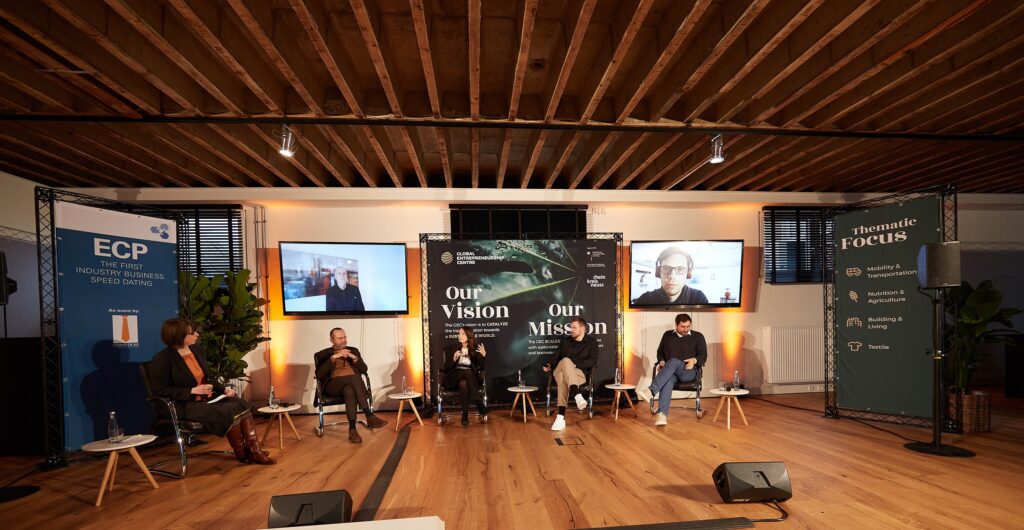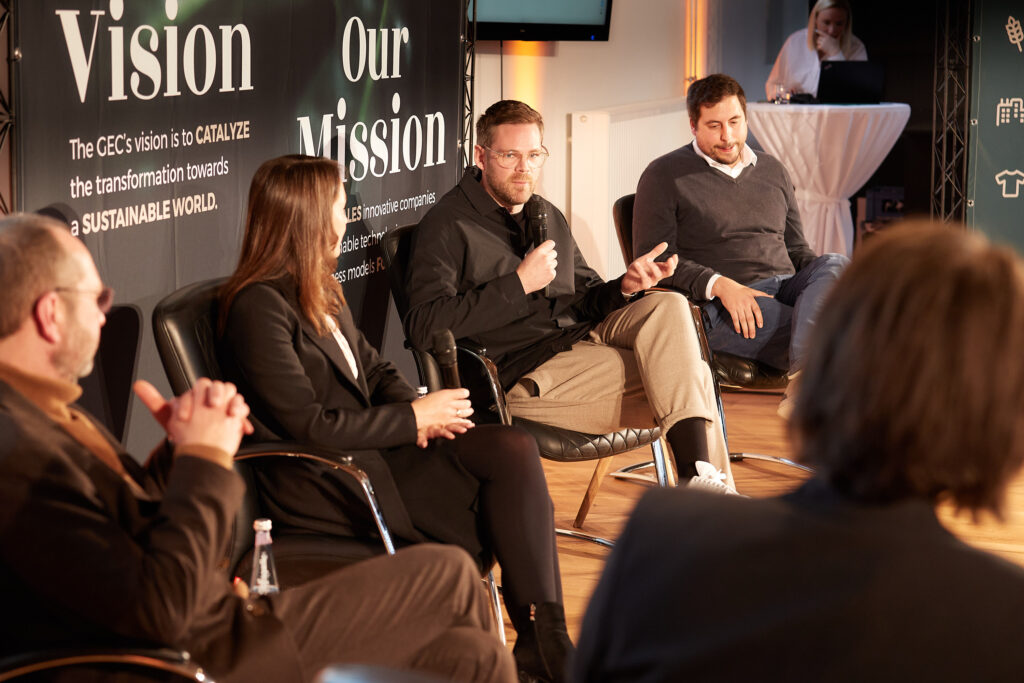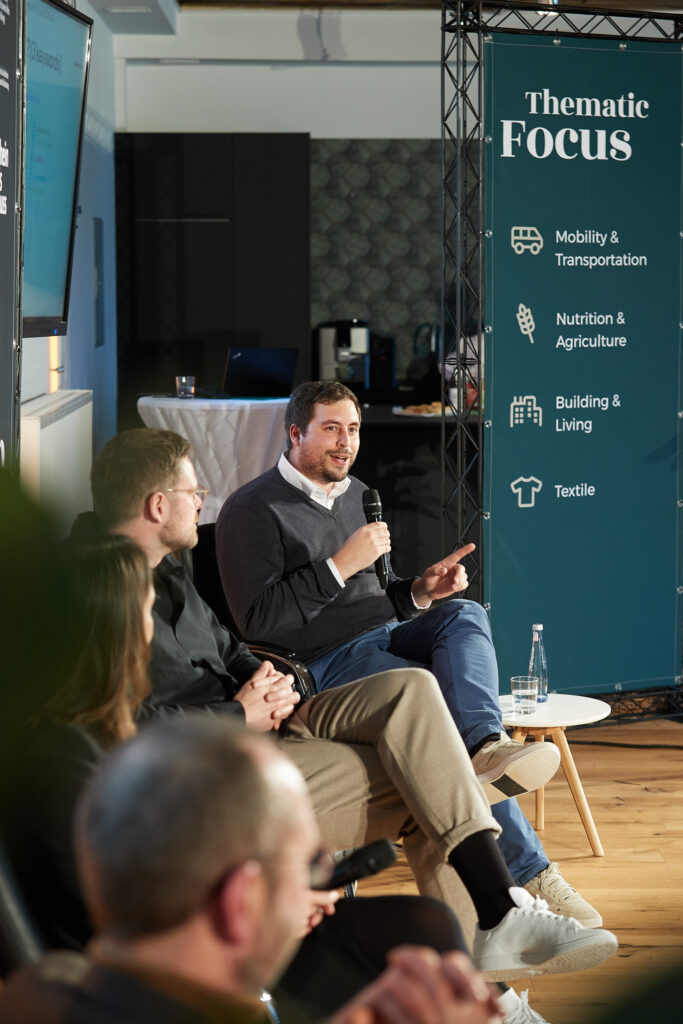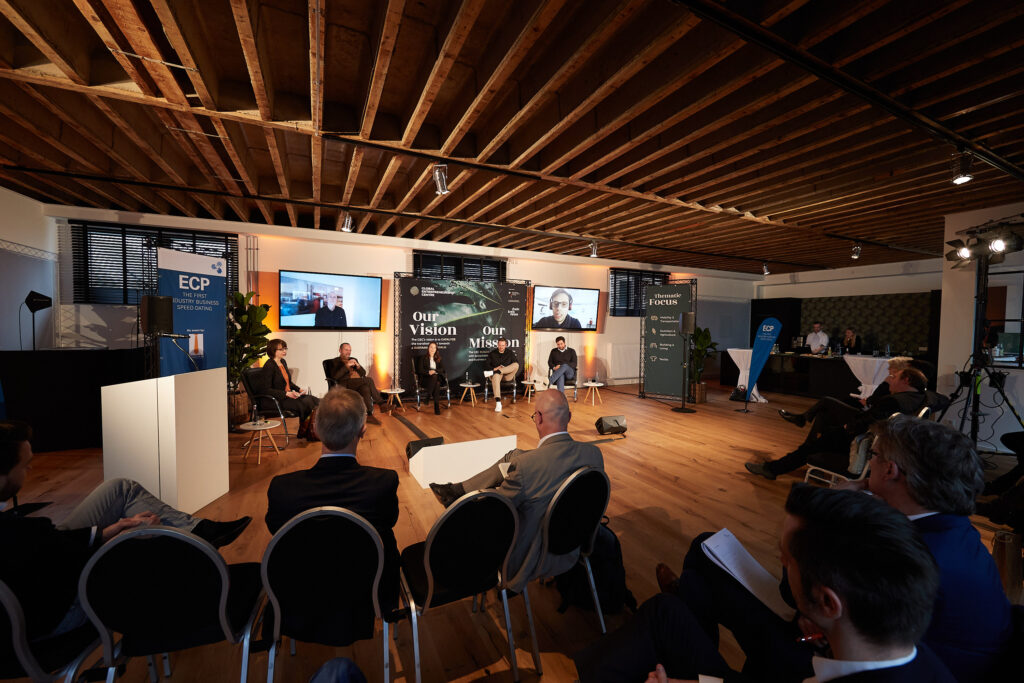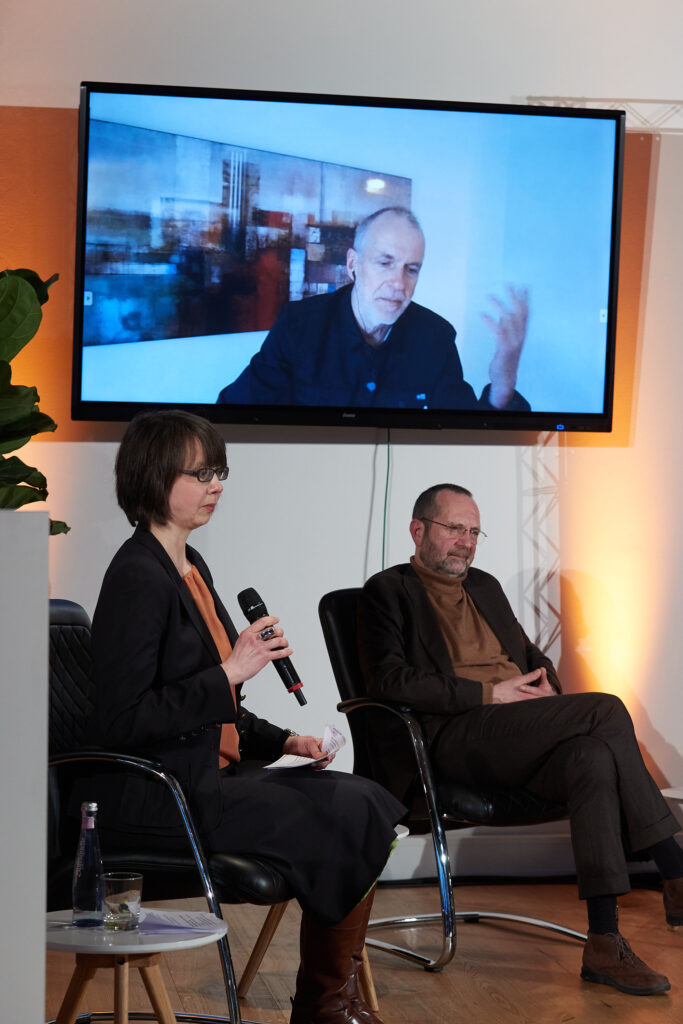AREAL BÖHLER / MEERBUSCH & Online
GEC & ECP
Panel Event
On February 16, 2022, the Global Entrepreneurship Centre hosted the opening of the 6th ECP at the brand-new GEC Campus in Dusseldorf Germany.
Being the main partner of the 6th ECP online Business Speed Dating, the Global Entrepreneurship Centre was introduced by Sebastian Gronwald, one of the two co-founders of the GEC. Sebastian’s introductory remarks were followed by two moderated panel discussions:
“Carbon for life” and “Next Generation Food” .
1st Panel
Carbon for Life
Carbon Dioxide, a biological and chemical raw material of the future?
The Panel “Carbon for life” was hosted by the Global Entrepreneurship Center (GEC) and moderated by Dr Veerle Vandeweerd, Strategic Board Advisor GEC, former Director Environment and Energy UNDP, NY, USA. The panel members were Prof. Dr. Günther Bachmann, President of German Sustainability Councel (2001-2020) of German Sustainability Council (2001-2020), Germany; Dr. Lars Boerger, Vice President Renewable Polymers & Chemicals, Neste Germany GmbH, Germany; Dr. Iris Rieth, Project Manager Carbon Dioxide Economy, IN4climate.NRW, Germany; Rob van der Meij, Partner Capricorn Partners, Entrepreneur, Board member, Private Investor, Belgium; and Dr. Frank Kensy, Managing Director & Co-Founder, b.fab GmbH, Germany.
Veerle Vandeweerd opened the topic with the strong message to the audience as well as to the society: “Can we change the paradigm and move from CARBON being a pollutant to CARBON being a raw MATERIAL, A resource with which we can build many things?”
Recommendations of the panellists can be summarized as follows:
- Carbon circularity is a needed approach
- There are technological innovations in the CCU field and new technologies are constantly emerging, but supporting only one technology might not be the best way forward.
- Start-ups play an important role in the CC innovation ecosystem in particular when it comes to applications in different industry areas such as tectiles, construction, agriculutre and mobility The carbon use for new building material could be a good carbon storage. Innovations should be prioritized according to their carbon storage potential.
- The price of captured carbon products still is a major challenge. However, the price of some chemical products produced out of captured carbon come cloes to the fosil based products.
- Start-ups in the area of circular carbon face severe scale-up challenges in particular in finance.Traditional investors hesitate because of tech based uncertainties as well as market uncertainties. Business incentieves need to be established by government
- Lab space and facilities are urgently needed to allow young entrepreneurs to scale. A 20 to 30 million investment in lab facilities would greatly help to position the region as a market leader in this quickly emerging and growing field.
- Crucial is the connection with policy setting. An enabling regulatory environment needs to be created to forward CCU and the general awareness about its economic possibilities and challenges needs to be increased. One of the problems that need to be adressed is the quality of the CO2 that the industry deliveres as feedstock.
- GEC could focus on niche CCU markets and bringing different industrial sectors together, based on what the NRW government is currently doing.The GEC focus areas Textile, mobility, building and living, agriculture and food, could be the basis to work on a closed carbob circle.
- There is an important role of centres like GEC in supporting the start-up companies and scale-up processes that are dealing with carbon circularity. A technical scaling centre for carbon circularity is urgently needed in Europe.
- Beside operational tasks in forwarding transformative technologies and companies, another important task of GEC is to keep a holistic approach and a strong focus on sustainability.
Within the framework of addressing the climate change it can be concluded that Carbon capture, utilisation and storage (CCUS) technologies are critical for putting energy systems on a path of sustainability, but the industry is still in its early stages of development and needs a lot of policy support, and right political framework – Piloting and lab facilities are crucial for the start-up support and for the success of a new cirular carbon industry.
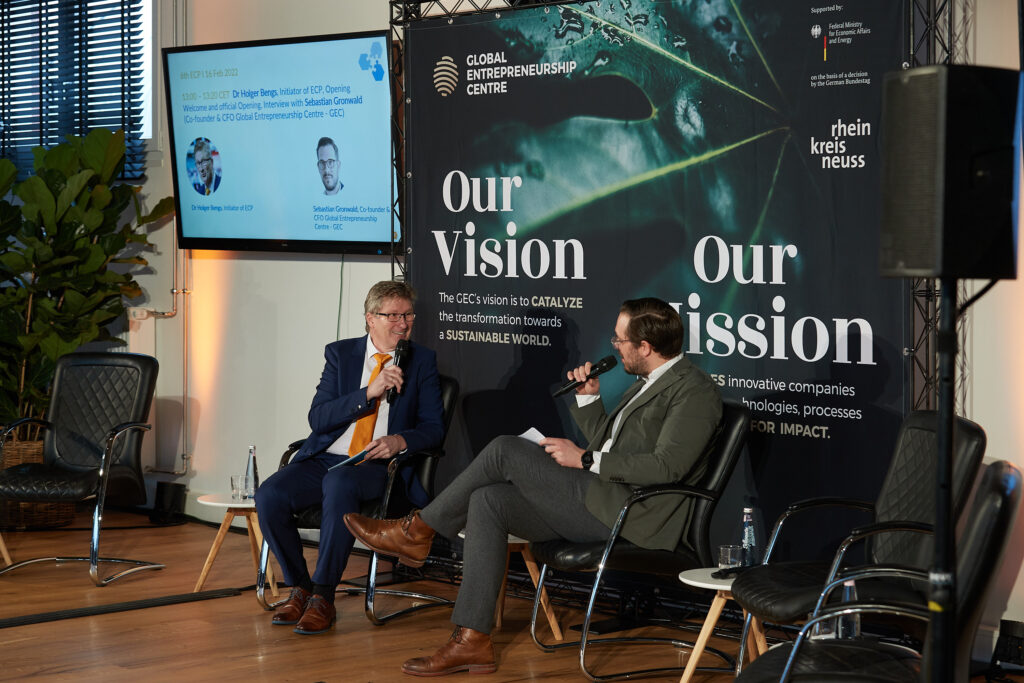
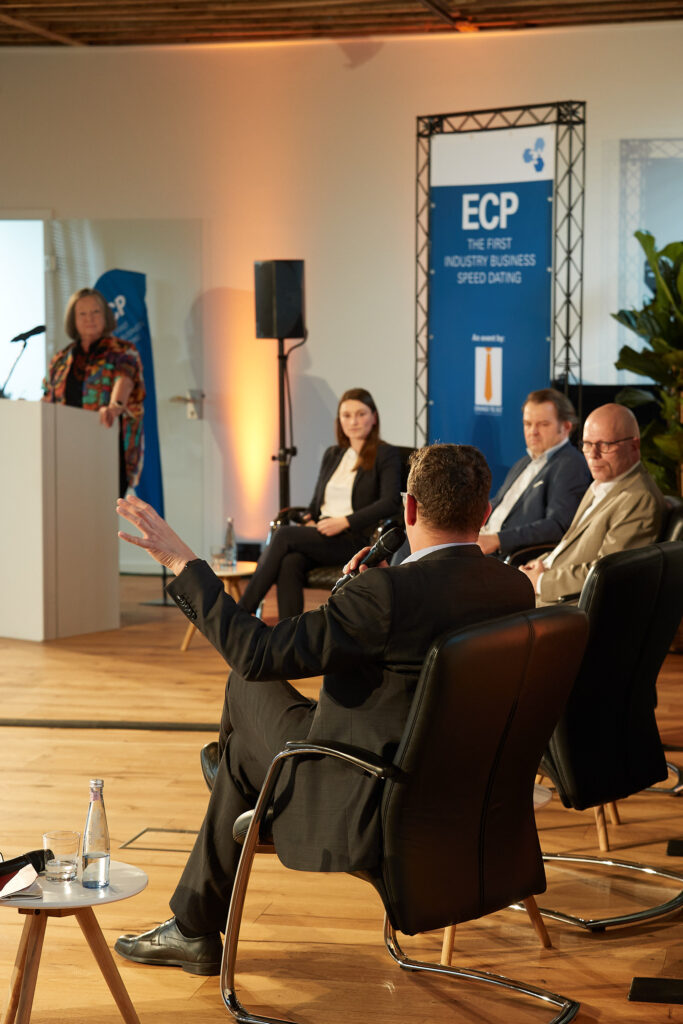
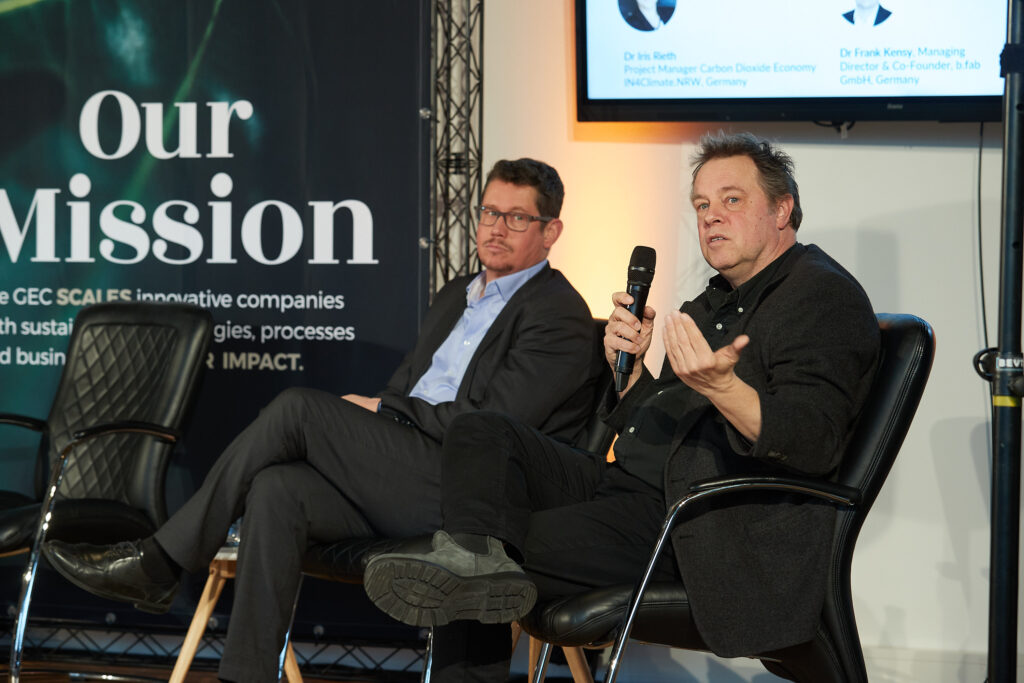
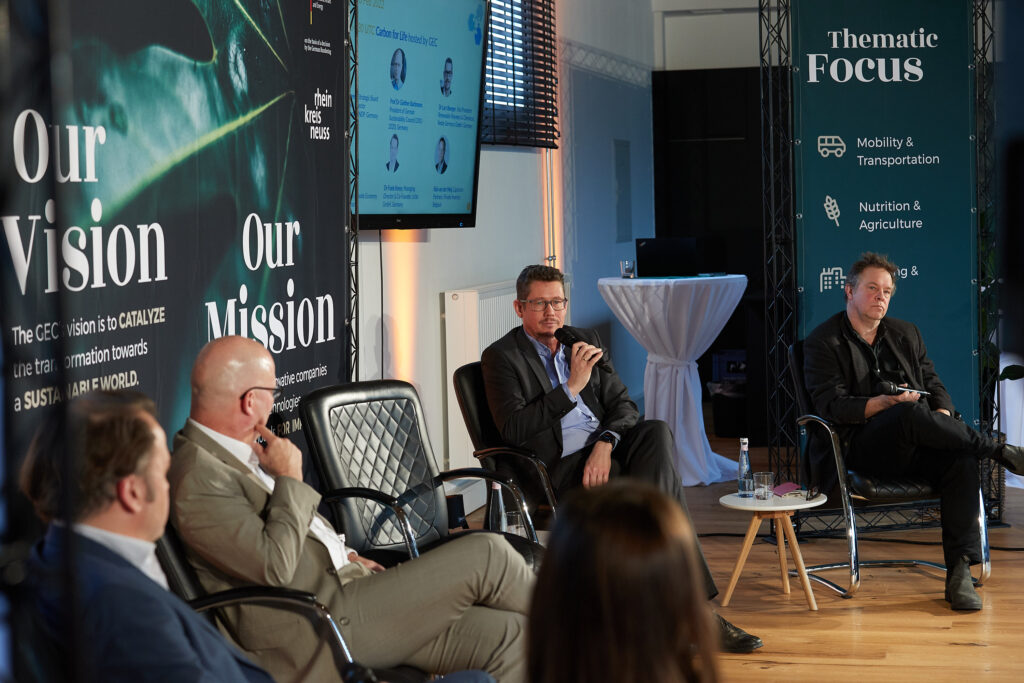
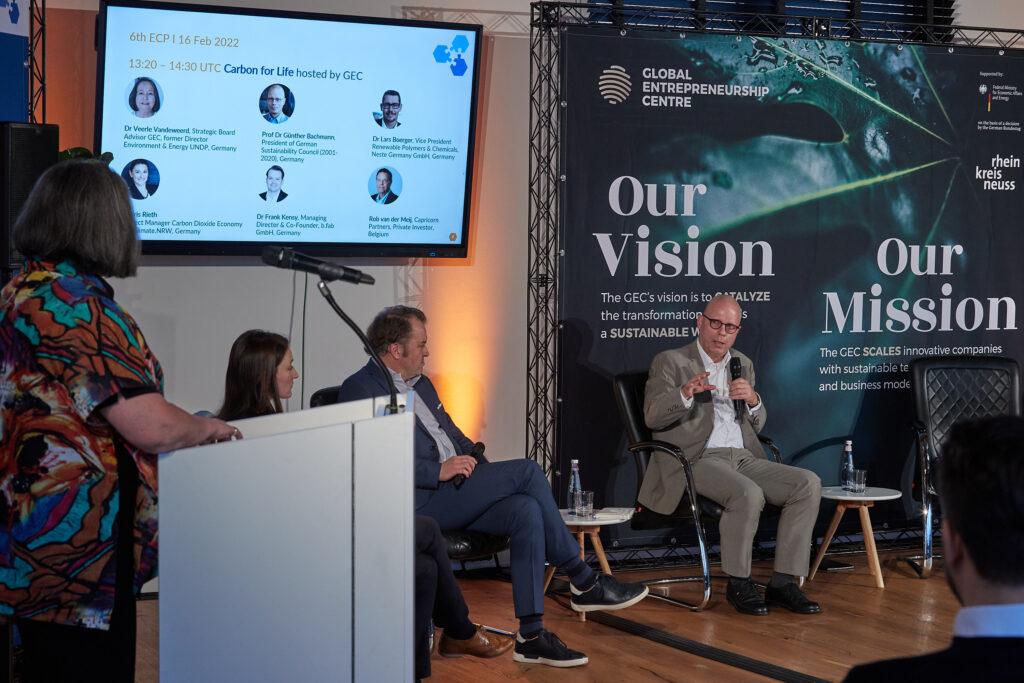
2nd Panel
Next Generation Food
The new power of Fermented Food
The following “Next Generation Food” discussion was moderated by Lee Greene, NRW FoodHub, was as insightful.
After the keynote address by Alexander Märdian, Head of Innovation Hub, DIL German Institute of Food Technologies, Germany, the panel experts, Prof. Thomas Herget,Head of Silicon Valley & China Innovation Hub at Merck Group, USA, Dr. Christoph Mandl, Business Creation Manager CLC Central, EIT Food Accelerator Network (EIT FAN), Germany, Rodrigo Hortega de Velasco, Head of Investments, Döhler Ventures GmbH, Germany, Carolin Wais, Carolin Wais, Investor, Plug & Play Ventures, USA, and Clément Tischer, Head of Innovation & Partnerships, NX-Food GmbH, Germany, shared information on the latest innovation trends in the agro-food industry, from soil conservation technologies to alternative protein production and waste management.
The main takeaways of the ECP food panel:
- Food innovation is currently a surging topic amongst entrepreneurs, investors, and corporates targeting these main priorities: taste and texture, price, functionality, cutting emissions, circularity, and health
- There is a shift in advancing the global food system to a more sustainable & resilient ecosystem which can be achieved depending on high technological-based, and energy efficiency solutions. The transformation is , fueled by the growing world population and changing consumer demand in developed and emerging countries
- One important innovation driver is the consumer demand, especially on price, taste, and texture. Most promising areas are expected in: vertical farming, protein diversification with a focus on new taste profiles and textures, valorization of food waste, the internet of the food to raise efficiency within the supply chain, and personalization of nutrition
- A topic that currently catches the most attention is protein diversification, where all technology platforms (e.g., plant-based, cell-based, fermentation, insects) will play an important role in the future. Despite regional differences regarding consumer acceptance, achieving price parity at scale with traditional sources of protein will be critical to unlocking mass markets:
- Precision fermentation remains a hot topic with promising high tech technology, applied for high-value ingredients, however, it still facing regulations bottlenecks from the European regulatory which is not supporting GMOs
- Algea technologies are a very active filed and they have huge potential and successful startups
- Cultured meat is still highly complex in technology and facing many market barriers in the short-run however it is estimated to reach price parity in 2030, providing a potentially sustainable (especially in water and the use of microplastics) and healthy (without antibiotics, no hormones, or contamination) meat alternative
- To advance the current food innovation system within Europe, startups need more access to technical playing fields such as laboratory & production facilities to support scalability, more open collaboration between corporates and startups, and a European legal framework that acknowledges new technologies in food.
- There is also a technological valley of death coming from the gap between innovations in the academics ecosystem and the access to scalability support from external ecosystems, creating a critical need to bridge the gap between university to application
- Educating consumers with convincing use cases is the main challenge for all stakeholders. One of the approaches to overcome this challenge was discussed by bringing the gastronomy sector into the ecosystem, as a use case for an initial market launch of the products, eventually educating customers and shifting their mindsets about novel products through chefs, or culinary services
